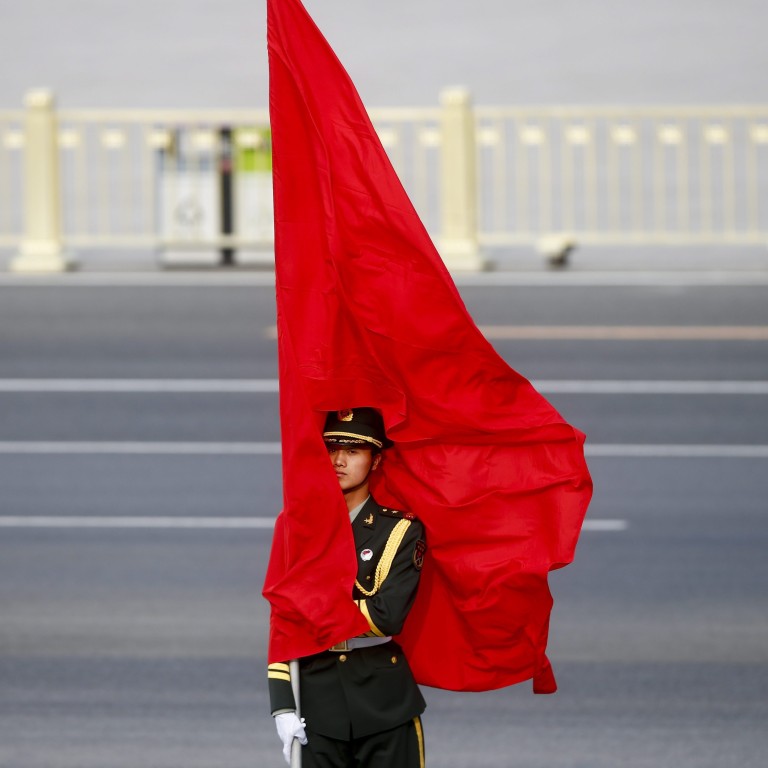
Beijing lays out security priorities in defence white paper
Defence white paper vows a stronger military, criticises US pivot to Asia-Pacific, and accuses Japan of 'making trouble' over Diaoyu Islands
China yesterday issued its eighth defence white paper in 15 years, and warned that the country faces "multiple and complicated" security threats, particularly in the Asia-Pacific region.
The Ministry of National Defence document pledged to build a strong military "commensurate with China's international standing, and to meet the needs of its security and development interests".

"Some countries are strengthening their Asia-Pacific military alliances and expanding their military presence in the region, frequently making the situation there more tense," it said, without naming any state.
However, it noted that "the United States is adjusting its Asia-Pacific security strategy, and the regional landscape is undergoing profound changes".
The white paper also made a special mention of Japan, accusing it of "making trouble" over the Diaoyu Islands in the East China Sea, which are at the core of a continuing territorial dispute that has soured relations between Beijing and Tokyo.
"On the issues concerning China's territorial sovereignty and maritime rights and interests, some neighbouring countries are taking actions that complicate or exacerbate the situation, and Japan is making trouble over the Diaoyu Islands issue," it said. Tokyo said it had lodged a protest with Beijing over the comment.
"There exists no territorial issue to be solved over the Senkakus," Hiroshige Seko, a deputy chief cabinet secretary, said, using the Japanese name for the islands.
Senior colonel Wu Xihua , deputy director of the PLA general staff's crisis management office, told a press conference on the white paper that the People's Liberation Army would retaliate if China's core interests were infringed.
"We oppose wars and never hope to engage in them. But if someone imposes a war upon us, we should be determined to fight and win," he said.
The dispute over the Diaoyus has escalated in recent months to the point where China and Japan have scrambled fighter jets and patrol ships to shadow each other.
Professor Ni Lexiong , a military expert, said the white paper also implied that Vietnam and the Philippines were trying to "fish in troubled waters" amid the impact of the United States' pivot towards the region.
"The white paper warned the PLA that it should be well prepared to cope with multiple and complicated threats and security challenges from both the sea and air sectors, with the US-Japan military alliance being the most challenging," Ni said.
Touted as a major move to boost military transparency, the white paper revealed for the first time the personnel size of the PLA's three main forces: 850,000 servicemen in 18 land corps, 235,000 in the navy and 398,000 in the air force - a total of 1.48 million.
The PLA had previously put the total at 2.3 million.
The Ministry of Defence told the that the difference of 820,000 between the two stated numbers was accounted for by border guards, defence researchers, and the army's Second Artillery Corps - the nation's core force for strategic deterrence whose size is classified a "top military secret".
The force comprises nuclear and conventional missile forces and operational support units.
Additional reporting by Reuters

